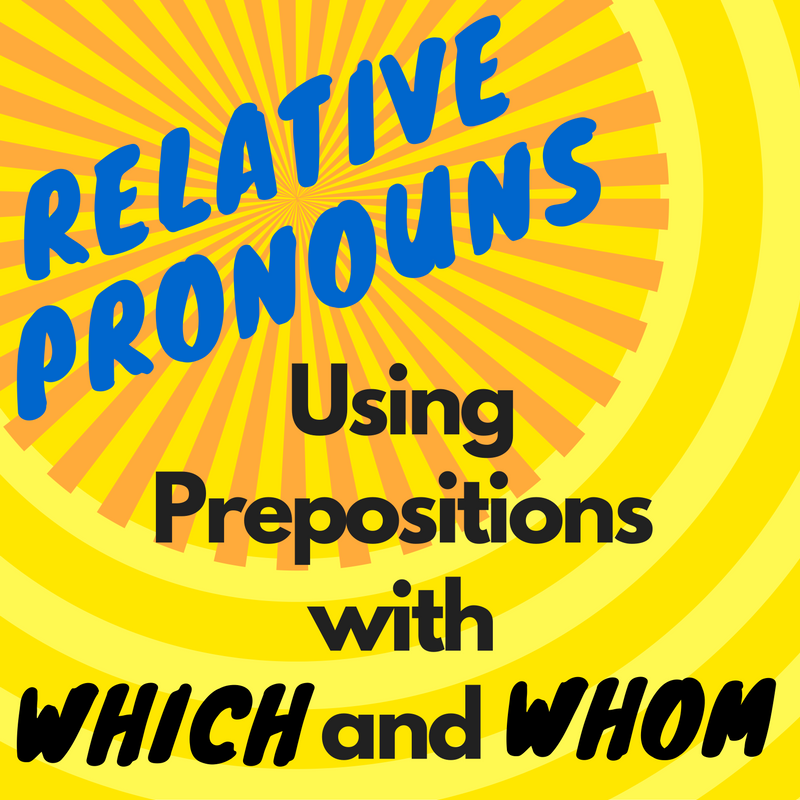

 Devon Balwit
Devon Balwit September 1, 2016
September 1, 2016 How can I improve my English?
How can I improve my English?As covered in our English classes, Students often make the following common relative clause error .
They forget to include the preposition that goes with the verb and comes before the object of the preposition :
The chair that I am sitting in isn’t comfortable.
The person who I live with is my cousin.
The school which I go to is in Oregon.
A partial list includes verbs such as:
 Let’s focus on the verb “ look at ”—
Let’s focus on the verb “ look at ”—We look at something or someone. That something or someone is the object of the preposition “ at .”
If I want to turn these sentences into adjective clauses, I must keep the preposition :
Putting the preposition first sounds very formal. I can also write the first sentence in these less formal ways:
The woman who I am looking at is sitting near the ocean.
The woman that I am looking at is sitting near the ocean.
The woman I am looking at is sitting near the ocean.
While the relative pronoun can change or be deleted, and while the position of the preposition at can change, I must always keep the preposition at .
 Let’s focus on a new verb, “pay for ”:
Let’s focus on a new verb, “pay for ”:I can pay for a friend (as in treat the friend). I can pay for dinner.
Now you try.
 thinking about a plan prepositions" width="300" height="225" /> The plan thinking about a plan prepositions" width="300" height="225" /> The plan |  The woman The woman |
Or, this noun can be the object:
If it is the object, you just need to follow the object with the relative clause.
Practice a few more times with the other verbs above, and you will be an advanced writer in English!